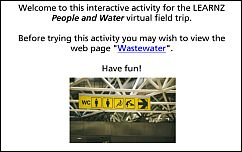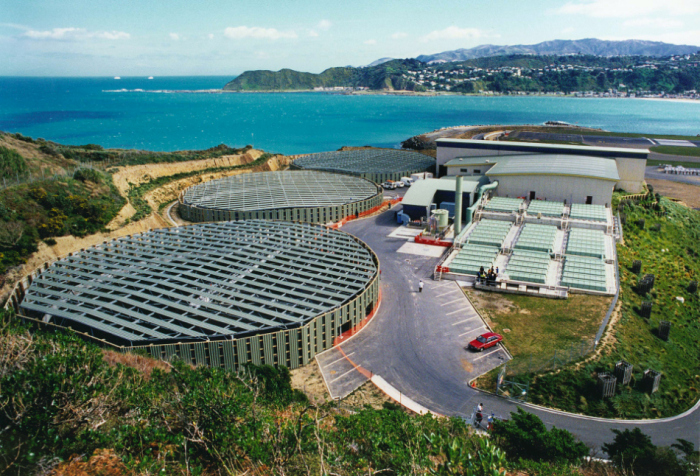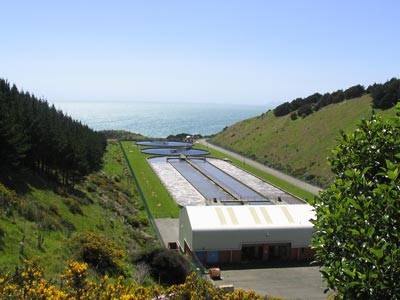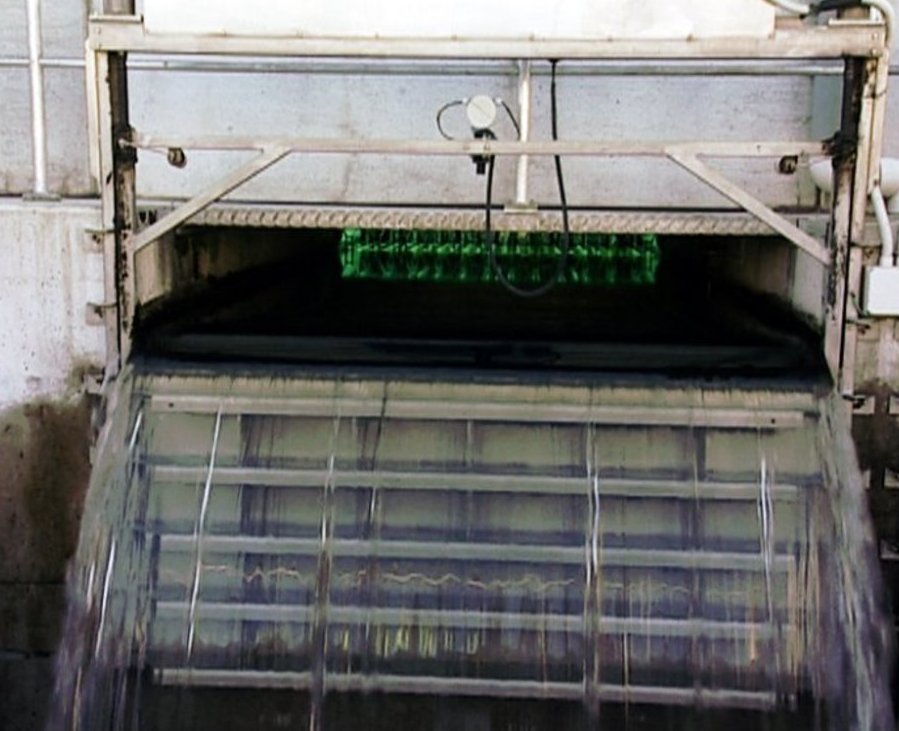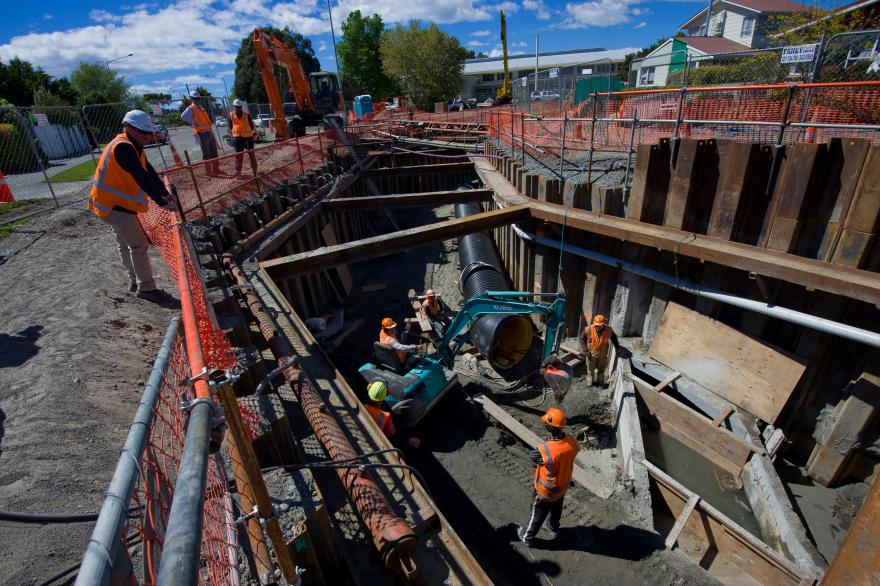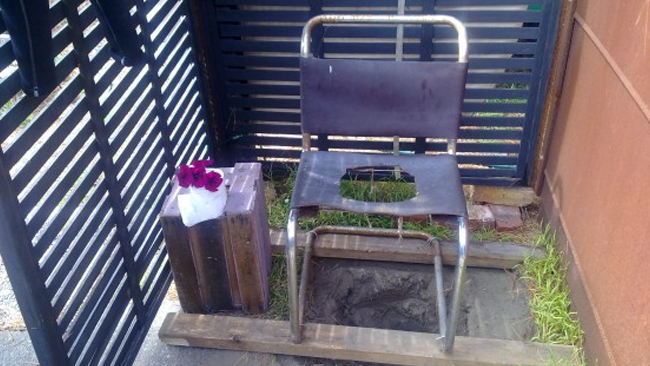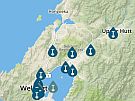Wastewater is all the water we use in our houses and workplaces. Each time you flush the toilet, pull the plug from a sink, or have a shower, the wastewater drains into a sewer pipe. Wastewater pipes are well sealed and buried in the ground.
Can you make a list of everything that goes into your house’s wastewater pipes?
Wastewater is also known as ‘sewage’ and is mostly water which comes from showers, baths, and washing machines. The remainder includes:
- human waste
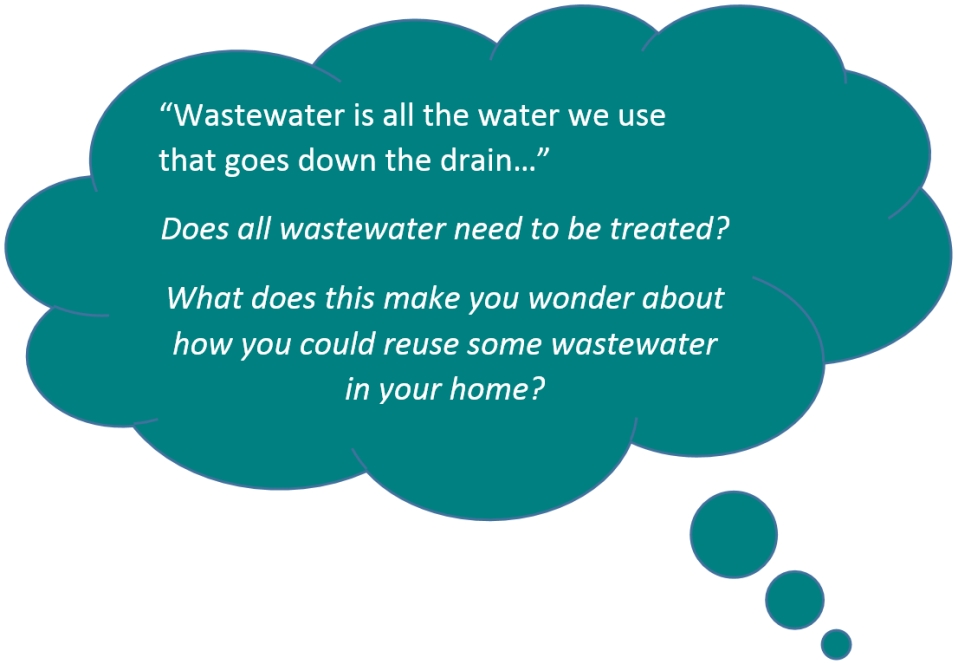
- food scraps
- fats, oil and grease
- solids such as sand, grit, and plastic
- household chemicals, cleaners and paints
Wastewater treatment in the Wellington region
There are four wastewater treatment plants in the Wellington region.
Together, they treat about 140 million litres of wastewater each day. The treated water is piped into the sea. The dried sludge and solids left over are sent to landfills.
Wastewater can be harmful
Wastewater can be harmful to our health and to our harbours and waterways. Wastewater can include bacteria, fungi, parasites or viruses that can make people sick, and harm the environment so treatment is very important.
A typical wastewater treatment plant includes three treatments:
- primary treatment to remove solid material
- secondary treatment to breakdown organic material
- tertiary treatment includes further filtering and removal of harmful bacteria often by using UV light which can kill bacteria.
The sewage sludge that is removed through wastewater treatment is treated further to remove any water and kill harmful bacteria before it is taken to a landfill. In some treatment plants gas from the sludge treatment process is used to generate electricity.
How to look after your wastewater system
People can help protect their wastewater pipes and save money on plumbing bills by only flushing the "3 P's" down the loo:
- pee
- poo
- paper (toilet paper that is)!
Not so flushable
Disposable wipes (or any other material, other than toilet paper) should never be flushed down the toilet. They can block up wastewater pipes - yours and your city's - and it can cost thousands of dollars to get the blockages cleared.

